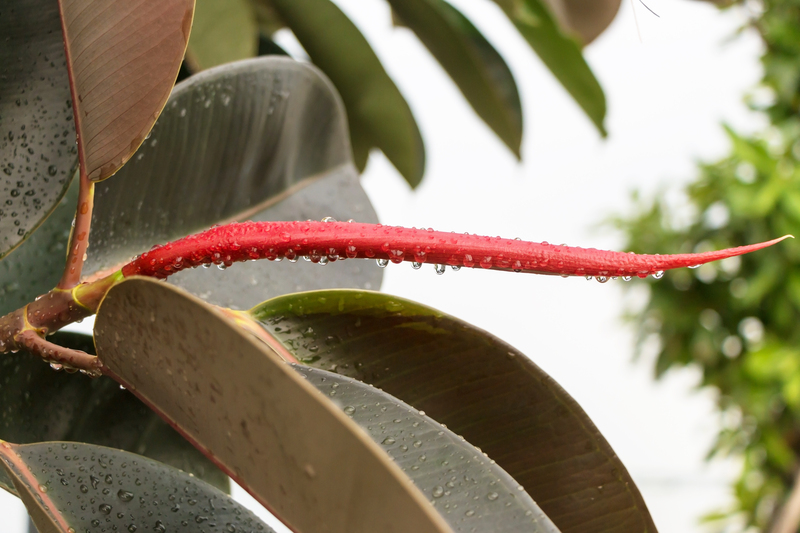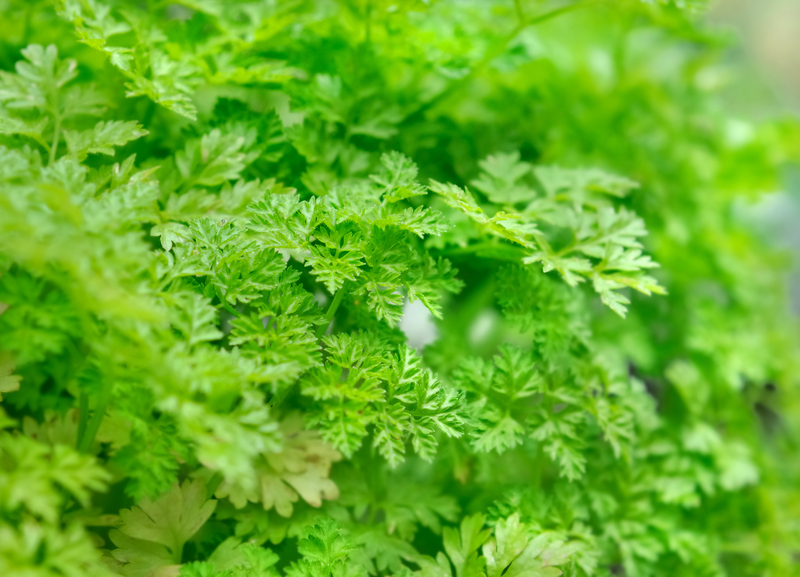Exotic Plants You'll Love Growing in a UK Garden
Are you a gardening enthusiast looking to add a touch of the unusual and exciting to your backyard? Even with the UK's changeable climate, exotic plants can be surprisingly at home. If you've ever dreamt of lush foliage, vibrant blooms, and a garden that transports you to faraway lands, this guide is crafted just for you. In this comprehensive article, we'll explore a collection of unique and exotic plants for UK gardens, offer growing tips, discuss their care requirements, and help you create a garden brimming with intrigue and colour.
Why Grow Exotic and Unusual Plants in a UK Garden?
Traditionally, the UK is associated with emerald lawns and classic cottage gardens. But, thanks to global plant exploration and advances in horticulture, it's easier than ever to cultivate rare, unusual, and tropical-looking plants--even in cooler, temperate regions. Growing exotic plants will:
- Add drama and personality to your outdoor spaces
- Attract pollinators and wildlife with unusual flowers
- Provide year-round colour and texture
- Create a unique and relaxing retreat for family and friends
- Offer a rewarding gardening challenge for all experience levels
Curious about which species will thrive in your plot? Read on for our top recommendations, plus essential care advice for each plant.

Best Types of Exotic Plants for UK Gardens
1. Banana Plants (Musa basjoo, Ensete ventricosum)
Banana plants bring bold, tropical flair to any garden with their huge, paddle-shaped leaves. The Musa basjoo, also known as the Japanese Banana, is particularly hardy and can survive temperatures down to -10?C with proper mulching. Alternatively, Ensete ventricosum 'Maurelii' offers striking red-tinted foliage.
- Sun and shelter: Full sun to partial shade; protect from strong winds.
- Soil: Moist, rich, well-drained.
- Care tip: Mulch crowns in winter to protect from frost and cut dead leaves in spring.
2. Cannas (Canna indica, Canna lily)
Famed for their lush, almost tropical leaves and fiery blooms in reds, oranges, and yellows, cannas are showstopping summer perennials. They thrive in the UK if given plenty of moisture and shelter.
- Sunlight: Full sun
- Soil: Fertile, moist but well-drained
- Care tip: Lift tubers after the first frost and store indoors over winter in colder areas, or choose hardier varieties.
3. Tetrapanax papyrifer 'Rex' (Rice paper plant)
For creating instant jungle drama, few plants rival the Rice paper plant. Its vast, deeply-lobed leaves can span a metre or more, lending a prehistoric vibe to your borders.
- Position: Sheltered spot, can tolerate coastal winds if established
- Soil: Well-drained, fertile soils
- Note: Spreads by suckers; manage accordingly
4. Tree ferns (Dicksonia antarctica, Cyathea cooperi)
Tree ferns offer lush, architectural foliage and bring a Jurassic ambiance to gardens. Dicksonia antarctica is surprisingly frost-tolerant once mature.
- Shade: Dappled or partial shade
- Soil: Moist, humus-rich, and well-drained
- Tip: Protect crown in winter using straw or fleece. Keep trunk moist in dry periods.
5. Hardy Palm Trees (Trachycarpus fortunei - Windmill palm)
Bring a taste of the Mediterranean to the UK with hardy palm trees. Trachycarpus fortunei is especially robust, handling frosts and even moderate snow.
- Aspect: Full sun to partial shade
- Soil: Free-draining, moderately fertile
- Key tip: In colder areas, wrap palm trunks with horticultural fleece in severe winters for best protection.
6. Passion Flower (Passiflora caerulea)
The passion flower delivers truly unique, intricate blooms in shades of blue, white, and purple from summer into autumn. Pollinators adore its nectar-rich flowers, and its sprawling habit is ideal for trellises, fences, and pergolas.
- Position: Warm, sunny wall or sheltered fence
- Soil: Fertile, well-drained
- Winter tip: Mulch roots in winter to protect in colder regions
7. Ginger Lilies (Hedychium species)
Hedychium or ginger lilies unfurl spectacular scented flowers in late summer and autumn, offering an exotic finish to borders.
- Sunlight: Sun or light shade
- Soil: Moist, well-drained
- Frost protection: Cover roots with mulch over winter or grow in pots to overwinter indoors
How to Create a Successful Exotic Garden in the UK
Transforming your plot into an eye-catching exotic garden in the UK involves more than choosing unusual plants. It's about clever planting, creative design, and weather-proofing your investments. Here's how:
Choose Your Microclimate
Many exotic species thrive in warmer, protected spots. To give your rare and tropical-looking plants the best start:
- Use walls, fences, or evergreen shrubs to create windbreaks and retain warmth
- South- and west-facing gardens receive the most sun and warmth
- Plant alongside patios or in inner courtyards for an extra heat boost
Soil and Drainage
Most exotic plants detest waterlogged roots. Make sure your soil is well-drained. You can:
- Dig in grit, sand, or organic compost to improve drainage
- Grow more tender specimens in large pots or raised beds for better drainage and easier winter storage
Moisture and Humidity
A lush, exotic look often means plants with high moisture needs. Keep them thriving by:
- Watering deeply during dry spells
- Mulching around roots to retain moisture
- Misting leaves in very hot or dry weather
Winter Protection for Exotic Plants
Many eye-catching plant species are surprisingly hardy, but UK winters can still cause problems. Here are essential steps to protect your exotic investment:
- Move pots undercover: Place in a greenhouse, conservatory, or shed
- Apply deep mulch: Use bark chips, straw, or compost around roots
- Wrap stems/trunks: Use horticultural fleece or bubble wrap for cold-sensitive species
- Cut back and dry tubers: Store tender bulbs (like canna, ginger lily) in a cool, frost-free place
More Exotic Plants to Experiment With
The UK's mild, temperate regions--especially in the South and coastal areas--support even more unusual species than you might imagine. Here's a further selection of unique, exotic plants to try in your garden:
- **Schefflera taiwaniana** - Glossy-leaved evergreen, impressively hardy and architectural
- **Melianthus major** - Striking toothed blue-green foliage and curious honey-scented flower spikes
- **Colocasia (Elephant's Ears)** - Oversized, heart-shaped leaves for tropical drama (grow in large pots for flexibility)
- **Phormium (New Zealand Flax)** - Sword-like, coloured leaves; tough yet exotic
- **Fatsia japonica** - Evergreen shrub with elegant, glossy lobed leaves (tolerates shade well)
- **Cordyline australis** - Palm-like silhouette perfect for containers and small gardens
- **Chusan Palm (Trachycarpus fortunei)** - Frost-hardy palm, iconic for UK exotic planting
- **Abutilon** - Shrubby mallow with pendant "lantern" flowers in vivid reds, oranges, and yellows
Design Tips for a Stand-Out Exotic Garden
Use Layers and Bold Foliage
The secret to an authentic-looking exotic garden is layering foliage. Combine different leaf shapes, sizes, and textures to create depth:
- Large leaves: Bananas, tetrapanax, colocasia
- Fine foliage: Bamboo, ornamental grasses, papyrus
- Vertical accents: Hardy palms, cordylines, yuccas
Include Vibrant Flowers
- Bright blooms: Cannas, ginger lilies, calla lilies, dahlias
- Unusual shapes: Passion flower, echium, protea (under cover)
Add Water Features and Decorative Elements
- Ponds and fountains offer humidity and reflect lush planting
- Use statues, large pots, and raised beds for architectural impact
- Mulch with bark or gravel for a finished, exotic look
Why Not Grow Edible Exotic Plants?
Did you know you can even grow some tropical-looking edible plants in the UK? Try these for a flavourful and decorative feast:
- Fig trees (Ficus carica) - Sweet fruit on attractive, lobed leaves
- Pomegranate (Punica granatum) - Compact shrubs with ornamental flowers and fruit
- Yacon - Crunchy, sweet-tasting tubers and huge, leafy stems
- Cape gooseberry (Physalis peruviana) - Glowing orange fruits inside paper lanterns
- Chillies and peppers - Ideal for greenhouses, conservatories, or sheltered borders

Common Questions About Exotic Plants in the UK
Are Exotic Plants Hard to Grow in the UK?
Not necessarily! Many exotic plants are surprisingly easy to grow once established. Start with the hardier varieties listed above; follow winter protection tips for tender plants. Growing in pots allows you to offer extra protection when needed.
Do Exotic Gardens Need a Lot of Water?
Some unusual plants have higher water demands--especially those with large, fleshy leaves. However, proper mulching and soil improvement will help retain moisture and reduce watering needs.
Can I Grow Exotic Plants from Seed?
Yes--many exotics, including cannas, bananas, and ginger lilies, can be grown from seed or bulbs. Growing from seeds is a budget-friendly way to create your tropical haven, though some patience is required for germination and maturity.
Will My Exotic Garden Survive UK Winters?
With a little planning, your exotic garden can thrive year after year. Focus on hardy species and use winter protection like mulching, wrapping, and growing in pots for tender varieties. Some plants may die back but regrow the following spring.
Conclusion: Enjoy the Exotic in Your English Garden
Whether you're aiming for a complete transformation or simply want to add a few focal points, growing exotic plants in a UK garden is easier than ever. Choose from tough, frost-hardy species like bananas, tree ferns, rice paper plants, and windmill palms, or experiment with colourful flowerers such as cannas and passion flowers. The result will be a garden that surprises, delights, and offers a little slice of the tropics on your doorstep--all year round.
Start planning your unusual plant collection today, and let your outdoor space become the envy of the neighbourhood--who says you can't have your own exotic paradise in the UK?